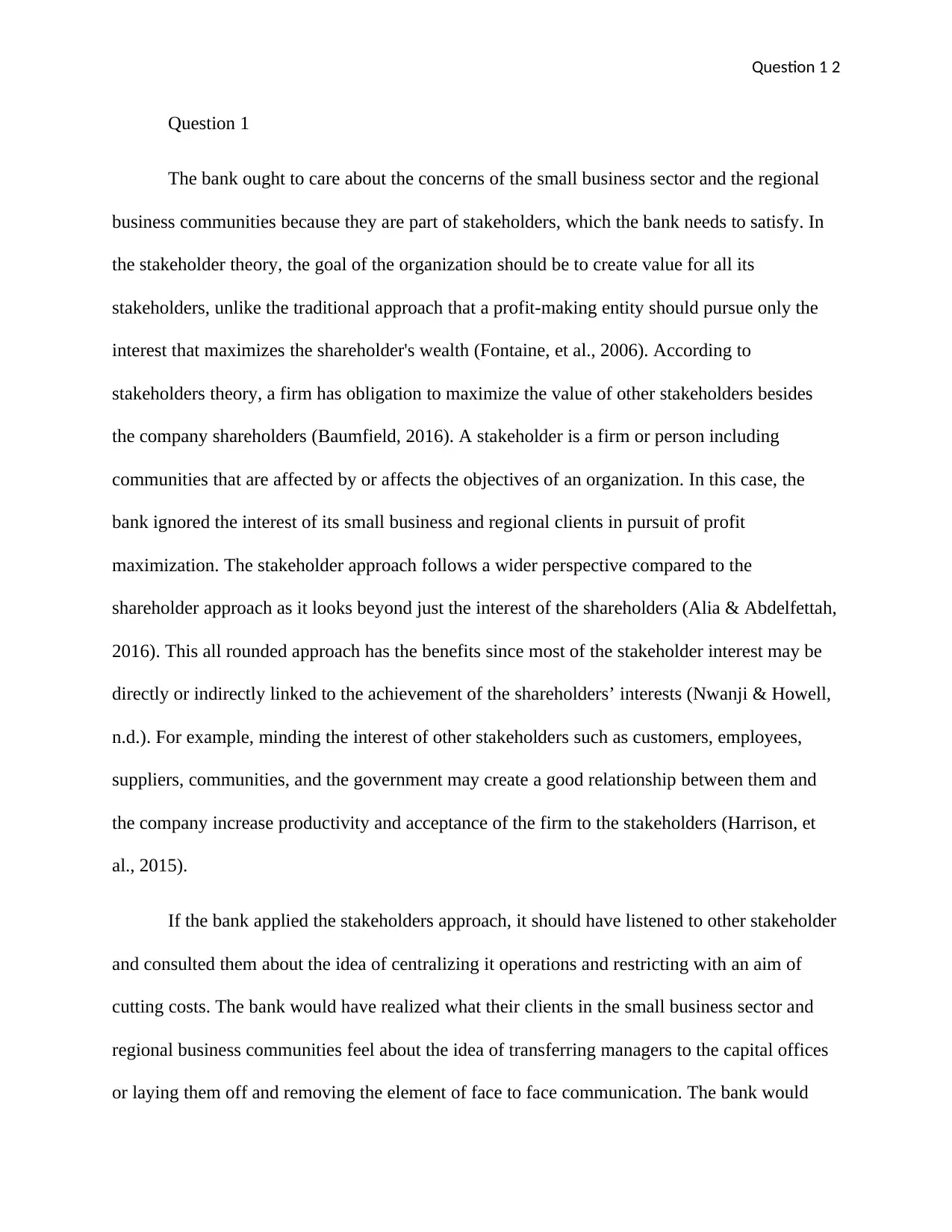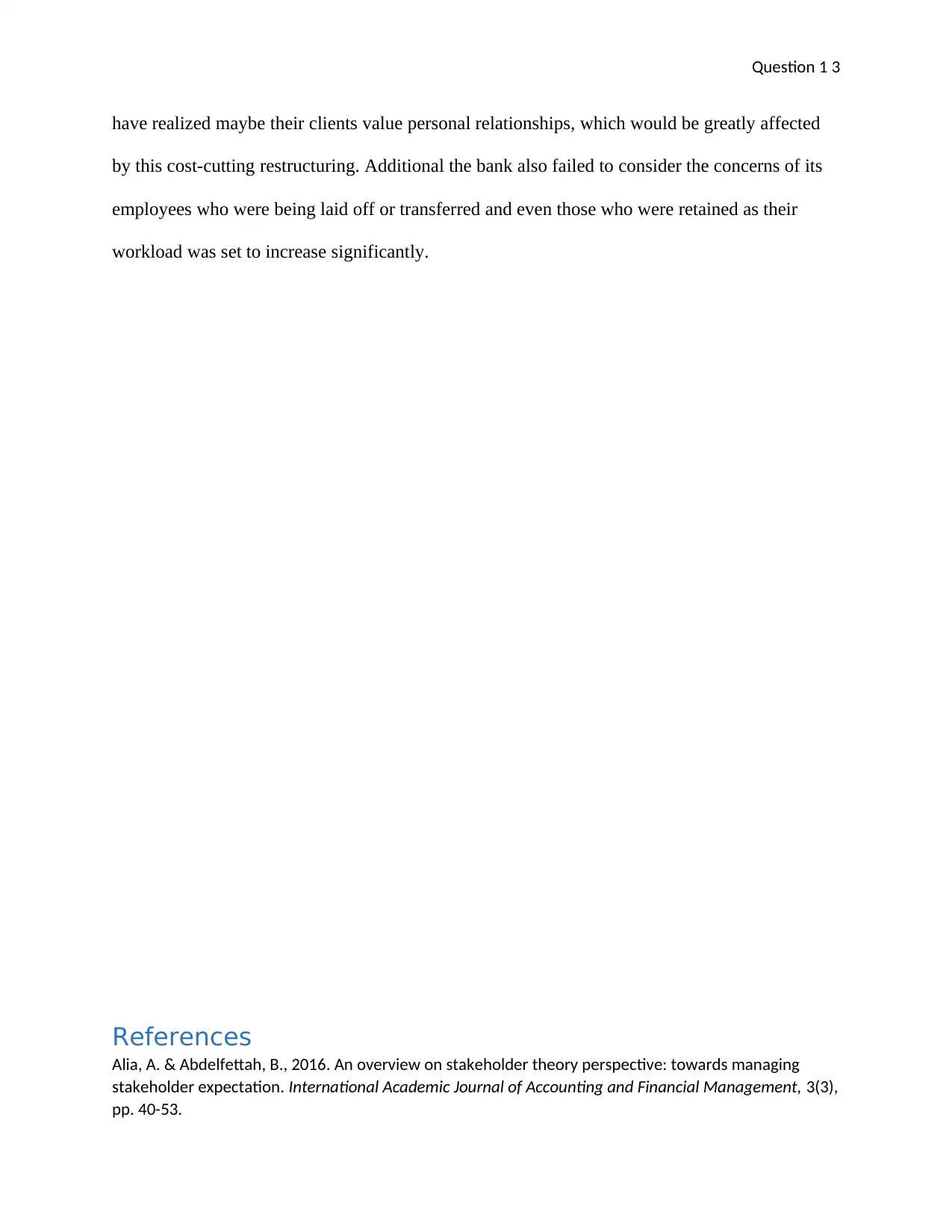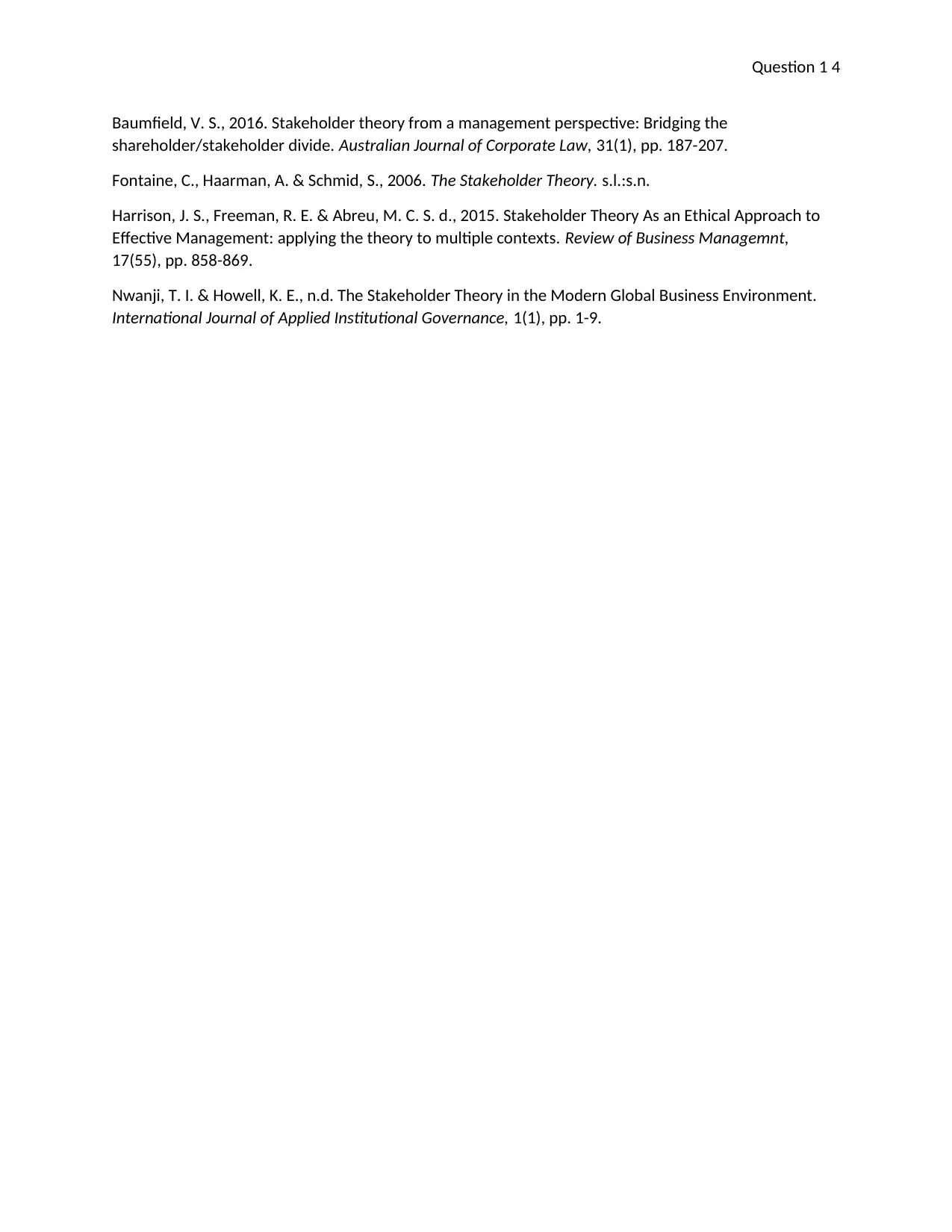University Accounting Assignment: ACC5AAI Question 1 Analysis
VerifiedAdded on 2023/06/03
|4
|620
|215
Homework Assignment
AI Summary
This assignment solution addresses Question 1 from the ACC5AAI Advanced Accounting Issues course. The solution focuses on stakeholder theory, analyzing why a bank should prioritize the concerns of small businesses and regional communities. It explains the stakeholder theory's principles, contrasting it with shareholder-centric approaches. The assignment highlights the importance of considering all stakeholders, including customers, employees, and the community, for long-term business success. The solution emphasizes the potential negative impacts of ignoring stakeholder interests, such as the bank's decision to centralize operations, and how this restructuring could affect relationships with clients and employees. The analysis incorporates references to academic literature supporting the stakeholder theory perspective.
1 out of 4







![[object Object]](/_next/static/media/star-bottom.7253800d.svg)